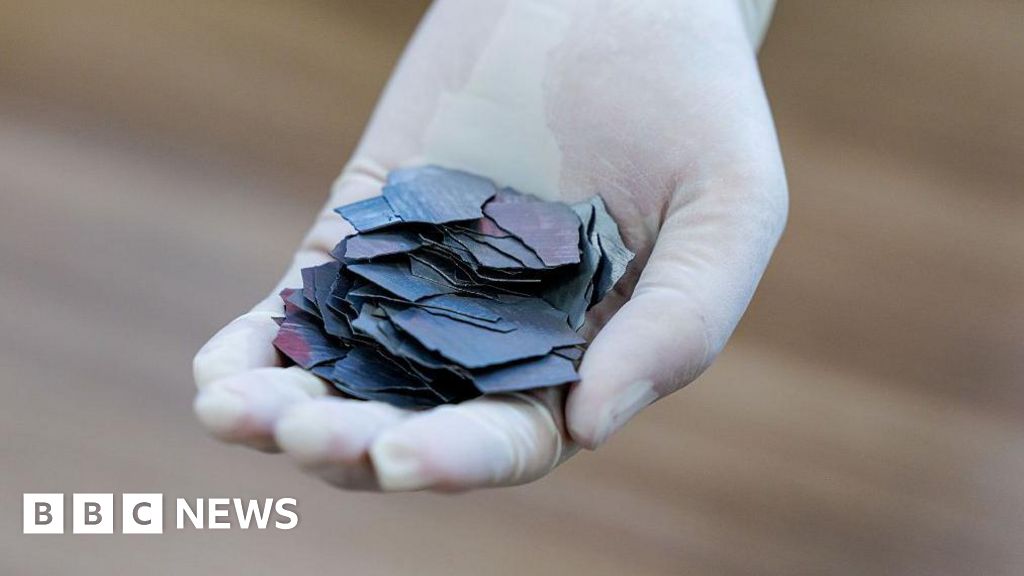Asia Business Correspondent in Eneabba
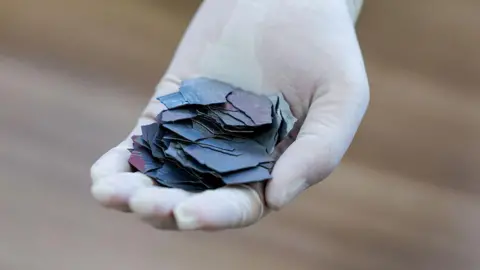 Bloomberg via Getty Images
Bloomberg via Getty ImagesDrive three hours north of Perth, and you’ll arrive in Eneabba – barren and desolate, just the odd hill in the distance.
This is Western Australia mining territory. Buried in this vast terrain is a massive pit, full of what looks like mounds of worthless dirt.
But appearances can be deceiving: this pit is home to a million-tonne stockpile containing critical minerals, better known as rare earths, which are crucial for making electric vehicles, wind turbines and defence equipment.
And Australia is betting big on this discovery with a billion dollar loan to a mining company to extract these metals – and disrupt a supply chain that China has monopolised.
Will the gamble pay off?
China’s chokehold on rare earths has hit home with US President Donald Trump’s trade wars. When Beijing restricted exports, a powerful bargaining chip in tariff negotiations, it sent manufacturers around the world into their war rooms. China, they realised with alarm, had the power to stop their factories.
Ford even halted production of its popular Explorer SUV for a week at one of its Chicago plants – a bold move while grappling with Trump’s tariffs.
A month later, CEO Jim Farley revealed the pause was triggered by a shortage of rare earths, admitting the company was still struggling to secure reliable supply. “It’s day to day,” Mr Farley told Bloomberg TV.
Beijing has since agreed to let rare earth minerals and magnets flow to the United States, which eased the bottleneck.
But without a US-China trade deal, the fear is that the disruption could return.
“The West dropped the ball – that’s the reality. And China was in for the long run. It saw the benefit and was willing to invest in it,” says Jacques Eksteen, chair for extractive metallurgy at Curtin University.
Why rare earths matter
The phrase “rare earths” – referring to 17 elements on the periodic table which are lightweight, super strong and resistant to heat, making them useful in small electric motors – is something of a misnomer.
“Rare earths are not rare or scarce. Gold is scarce, but it’s not a critical material,” Professor Eksteen explains.
Rare earths are critical, however. Take the average electric vehicle – there might be rare earths-based motors in dozens of components from side mirrors and speakers to windscreen wipers and braking sensors.
The problem is therefore not amount, but the fact “somewhere in the supply chain you’ve got one or maybe a few countries controlling that bottleneck”, Professor Eksteen adds.
In the 90s, Europe and France in particular had a prominent rare earths industry. Today, almost all these minerals come from China, which has spent decades mining and refining at scale.
China now accounts for more than half of global rare earth mining, and almost 90% of processing.
The US sources 80% of its rare earth imports from China, while the European Union relies on China for about 98% of its supply.
“China has since very deliberately and overtly sought to control the market for the purposes of supporting their downstream manufacturing and defence industries,” says Dan McGrath, head of rare earths for Iluka Resources, in between driving us around the company’s vast Eneabba site.
But Mr McGrath, and Iluka, are hoping to make a dent in that control – even if it wasn’t necessarily in the company’s original plan.
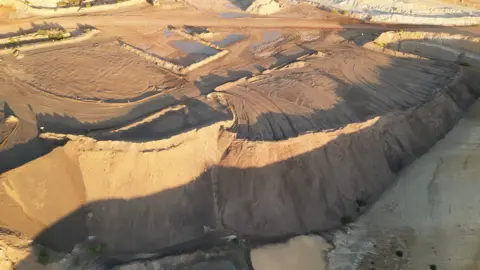
For decades, Iluka has been mining zircon in Australia – a key ingredient in ceramics, and titanium dioxide used in the pigmentation of paint, plastics and paper.
It just so happens the byproducts of these mineral sands include dysprosium and terbium – some of the most sought-after rare earths.
Over the years, Iluka has built up the stockpile, and is now worth more than $650m (£440m).
This was the easy part, however. The processing or refining is another matter altogether.
“They’re chemically very similar so to try and separate them requires a huge number of stages,” Professor Eksteen explained.
“Also, you’ve got residues and wastes that you have to deal with out of this industry, and that’s problematic. They often produce radioactive materials. It comes at a cost.”
And that is one of the reasons the Australian government is loaning Iluka A$1.65bn ($1bn; £798m) to build a refinery to meet demand for rare earths which Iluka sees growing by 50-170% by the end of the decade.
“We expect to be able to supply a significant proportion of Western demand for rare earths by 2030. Our customers recognise that having an independent, secure and sustainable supply chain outside of China is fundamental for the continuity of their business,” says Mr McGrath.
“This refinery and Iluka’s commitment to the rare earth business is an alternative to China.”
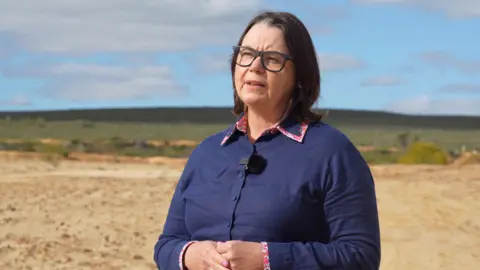
But the refinery will take another two years to build and come online.
“Without the strategic partnership we have with the Australian government, a rare earths project would not be economically viable,” Mr McGrath says.
A strategic necessity
China’s recent willingness to turn supply of rare earths on and off has spurred trading partners to diversify their suppliers.
Iluka says because automakers for example plan their production years in advance, it is already fielding requests for when its refinery does come online.
Rare earths are critical to the green transition, electric vehicles, and defence technologies – making their control a pressing national priority.
“The open international market in critical minerals and rare earths is a mirage. It doesn’t exist. And the reason it doesn’t exist is because there is one supplier of these materials and they have the wherewithal to change where the market goes, whether that be in pricing or supply,” Australia’s resources minister Madeleine King says.
Canberra sees government intervention as necessary to provide an alternative supply, and help the world rely less on China.
“We can either sit back and do nothing about that… or we can step up to take on the responsibility to develop a rare earths industry here that competes with that market,” Ms King adds.
But there is something that Australia will have to contend with as it invests and works to expand a rare earths industry – pollution.
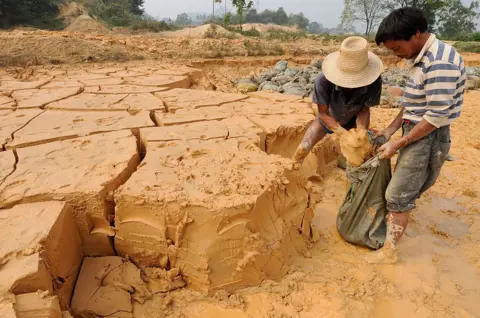 Getty Images
Getty ImagesIn China, environmental damage from years of processing rare earths has led to chemicals and radioactive waste seeping into waterways – cities and people bearing the scars of decades of poor regulation.
With rare earths, it’s not so much about the mining footprint, rather the processing that is a dirty business – because it involves extraction, leaching, thermal cracking and refining which produce radioactive components.
“I think there is no metal industry that is completely clean… unfortunately, it’s a matter of picking your poison sometimes,” Professor Eksteen says.
“In Australia, we’ve got mechanisms to handle that. We’ve got a legal environment and a framework to work with that to at least deal with it responsibly.”
The EU has in the past accused China of using a “quasi monopoly” on rare earths as a bargaining chip, weaponising it to undermine competitors in key industries.
The bloc – which is home to hundreds of auto manufacturers that so desperately need rare earths – said even if China has loosened restrictions on supplies, the threat of supply chain shocks remains.
Even if building a brand new industry will take time, Australia seems to have a lot going for it in the rare earths race, as it tries to be a more reliable and cleaner source.
And one that – crucially – is independent of China.
Additional reporting by Jaltson Akkanath Chummar
